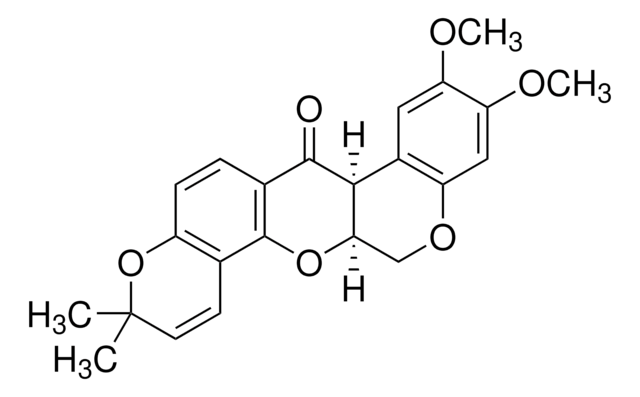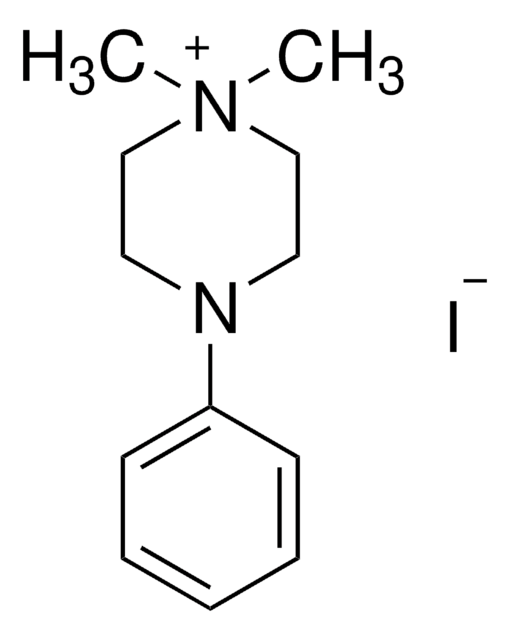D1260
Decamethonium bromide
crystalline
Synonym(s):
Decamethylene bis(trimethylammonium bromide), Decane-1,10-bis(trimethylammonium bromide)
About This Item
Recommended Products
form
crystalline
Quality Level
color
off-white
mp
263-267 °C (lit.)
originator
GlaxoSmithKline
SMILES string
[Br-].[Br-].C[N+](C)(C)CCCCCCCCCC[N+](C)(C)C
InChI
1S/C16H38N2.2BrH/c1-17(2,3)15-13-11-9-7-8-10-12-14-16-18(4,5)6;;/h7-16H2,1-6H3;2*1H/q+2;;/p-2
InChI key
HLXQFVXURMXRPU-UHFFFAOYSA-L
Gene Information
human ... CHRNA1(1134) , CHRNA10(57053) , CHRNA2(1135) , CHRNA3(1136) , CHRNA4(1137) , CHRNA5(1138) , CHRNA6(8973) , CHRNA7(1139) , CHRNA9(55584) , CHRNB1(1140) , CHRNB2(1141) , CHRNB3(1142) , CHRNB4(1143) , CHRND(1144) , CHRNE(1145) , CHRNG(1146)
Looking for similar products? Visit Product Comparison Guide
Application
Biochem/physiol Actions
Features and Benefits
Signal Word
Danger
Hazard Statements
Precautionary Statements
Hazard Classifications
Acute Tox. 3 Oral - Eye Irrit. 2 - Skin Irrit. 2 - STOT SE 3
Target Organs
Respiratory system
Storage Class Code
6.1C - Combustible acute toxic Cat.3 / toxic compounds or compounds which causing chronic effects
WGK
WGK 3
Flash Point(F)
Not applicable
Flash Point(C)
Not applicable
Personal Protective Equipment
Choose from one of the most recent versions:
Already Own This Product?
Find documentation for the products that you have recently purchased in the Document Library.
Our team of scientists has experience in all areas of research including Life Science, Material Science, Chemical Synthesis, Chromatography, Analytical and many others.
Contact Technical Service









